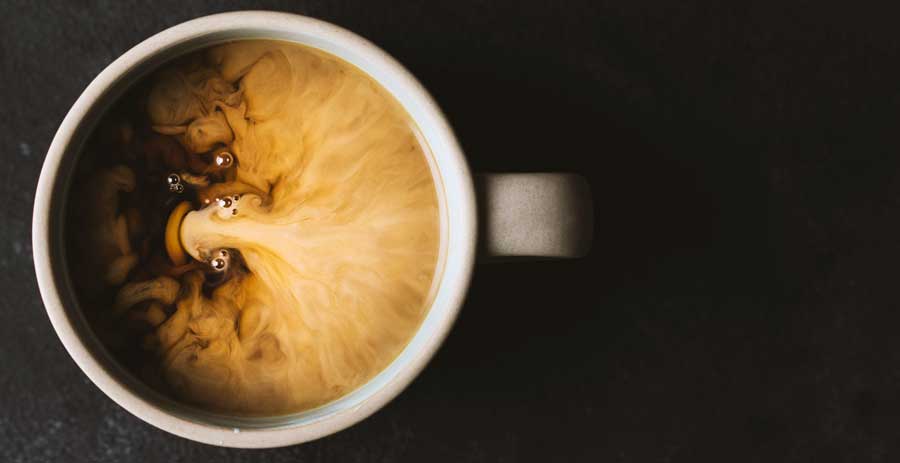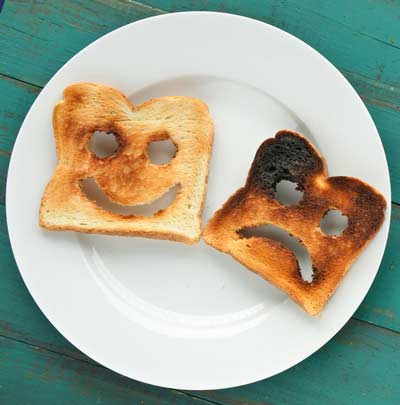Is acrylamide bad for you?
In the United States, fried potato products like French fries and potato chips are the greatest source of acrylamide in many peoples’ diets (38%), followed by crackers, cookies and cakes (17%), bread (14%), snacks such as roasted nuts, and popcorn (14%), cereal products (9%), and lastly, coffee (8%).

What is acrylamide?
Acrylamide is a chemical that can form whenever foods are cooked at high temperatures. That includes baking, roasting, frying, grilling, barbecuing, and toasting.
That’s right, if you cook food, you’re getting some acrylamide. Generally, the temperature must be at least 248 degrees Fahrenheit (140 degrees Centigrade).

In the United States, fried potato products like French fries and potato chips are the greatest source of acrylamide in many peoples’ diets (38%), followed by crackers, cookies, and cakes (17%), bread (14%), snacks such as roasted nuts and popcorn (14%), cereal products (9%), and lastly, coffee (8%).1
Tobacco smoke also contains acrylamide.
Is acrylamide bad for you?
“We are occasionally asked, ‘Is acrylamide bad for you?’ by our Pritikin guests and alumni who purchase coffee or coffee substitutes like Cafix, because that’s where the warning labels are currently showing up,” says Kimberly Gomer, MS, RD, Director of Nutrition at the Pritikin Longevity Center in Miami.
“We do our best to assure people that acrylamide should be very low on their list of concerns. Far more dangerous are foods full of saturated fats, trans fats (partially hydrogenated fats), sodium, added sugars, and heavily refined foods. All the above have legions of research showing that they contribute to life-threatening conditions like heart attacks, strokes, type 2 diabetes, high blood pressure, breast cancer, prostate cancer, and obesity.
“By contrast, there is no evidence that lifelong coffee drinkers get more cancer.”
Moreover, while there are some rodent studies indicating that acrylamide exposure increases the risk of cancer,2 a large number of epidemiologic studies on humans (both case control and cohort studies) “have found no consistent evidence that dietary acrylamide exposure is associated with the risk of any type of cancer3,4,” states the National Cancer Institute.
So why the very strict warnings from California’s Prop 65?
It’s important to understand the intent of Proposition 65. First, the legislation is not aimed solely at acrylamide. Passed by voters in 1986, Prop 65’s goal is to inform citizens about exposures to any chemicals that may increase cancer risk, even if the risk is only slight.
Prop 65 has determined that consumption of acrylamide must not exceed .2 mcg daily to have no risk of cancer. But even somewhat higher amounts of acrylamide – the amounts consumed by most people – probably put us at only very low risk.
How much acrylamide are we eating?
An adult weighing 150 pounds consumes about 35 mcg of acrylamide per day.5 This is much lower than the 140 mcg limit of the EPA.
“And there’s a good chance that people following the Pritikin Eating Plan take in even lower amounts of acrylamide because they aren’t eating foods that contain the greatest quantities of acrylamide, like French fries. Nor are they smoking,” points out Pritikin nutritionist Kimberly Gomer.
To reduce the already small hit of acrylamide in your coffee, drip brew your coffee. Drip brew preparation typically results in less acrylamide than coffee prepared by decoction (such as Turkish coffee) and pressure preparation (French press, expresso).6 Drip brew, for example, using paper filters or capsule filters like Keurig, also eliminates the modest cholesterol-raising effect of other forms of coffee preparation.
Bottom Line | Is acrylamide bad for you?
Large amounts of acrylamide might increase cancer risk, but the amounts that most Americans eat are likely not harmful, or only slightly so.
There’s more heartening news: “The amounts of acrylamide consumed by people following a healthy diet like the Pritikin Eating Plan are probably even less than that of the typical American,” affirms Kimberly Gomer.
“So if you enjoy a cup of coffee in the morning, keep enjoying it,” she assures.
“To keep your risk of cancer low, it’s far more important that you skip the bacon.”
Sources
- 1 Journal of Agricultural and Food Chemistry, 2008; 56 (15): 6113.
- 2 National Toxicology Program technical report series, 2012; (575): 1.
- 3 Nutrition and Cancer, 2014; 66 (5): 774.
- 4 European Journal of Cancer Prevention, 2012; 21 (4): 375.
- 5 Journal of Agricultural and Food Chemistry, 2008; 56 (15): 6013.
- 6 Factors Affecting Acrylamide Levels In Coffee Beverages, 2015. Academic Press. Pages 217-224.